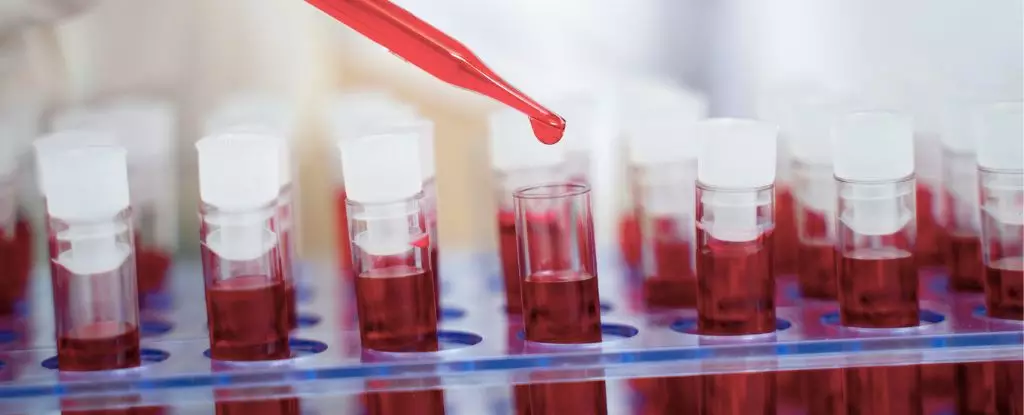In a significant scientific breakthrough, researchers have discovered a way to identify individuals at the highest risk of suicidal behavior using only biological markers present in their blood. Although not infallible, this method achieved an impressive accuracy rate of around 90 percent in a test involving nearly 200 participants. By analyzing certain markers of energy production in the body’s cells, the researchers were able to identify five metabolites in female participants and a slightly different five in males that correlated with suicidal ideation and major depressive disorder. These findings carry the potential to revolutionize suicide prevention methods and save countless lives.
Scientists have long recognized a link between depression and metabolic diseases, both of which are characterized by underlying chronic inflammatory states. However, clinical treatments for depression do not work for everyone, necessitating research into new drug targets. The advent of technologies like metabolomics has enabled researchers to delve into the biochemistry of cellular conversations and shed light on the metabolic intricacies underlying mental health conditions. By measuring a staggering 448 metabolites, researchers in this study identified several markers directly associated with depression and suicidal ideation.
Among the biomarkers flagged in individuals with suicidal ideation were lactic acid and fibroblast growth factor 21 (FGF21), both of which are linked to mitochondrial stress. Suicidal ideation was also associated with deficiencies in several blood metabolites, such as carnitine, CoQ10, folic acid, citrulline, vitamin D, and lutein. These metabolites are involved in energy production, gene expression regulation, and toxin removal. The identification of these markers suggests that correcting metabolic imbalances could improve treatment outcomes for individuals with major depressive disorder.
Interestingly, whereas depression has previously been associated with increased oxidative stress in cells and tissues, this study revealed a different effect in individuals with suicidal ideation. In cases of reductive stress, the mitochondria, the metabolic heart of a cell, slows its production of reactive oxygen species, leading to an increased cellular metabolism. This metabolic overload results in an excess of cellular energy in the form of ATP, which can trigger various protective responses. The researchers hypothesize that suicide attempts may be a physiological response to halt an unbearable stress reaction at the cellular level.
While this study represents a significant step forward in understanding suicidal behavior and its biological underpinnings, further research is needed to validate the blood markers associated with suicidal ideation. The authors of this study hope that their findings will inspire future investigations and ultimately contribute to the development of effective suicide prevention strategies. By gaining a deeper understanding of the metabolic processes involved in mental health conditions, it may be possible to intervene and provide targeted treatments to individuals at greatest risk.
The discovery of biological markers associated with suicidal ideation opens up new possibilities for preventing suicide. Early identification of individuals at high risk could enable intervention and support, potentially saving lives. While the identified metabolites are not a panacea for depression, they provide valuable insights into the underlying mechanisms and offer hope for targeted therapies that can improve treatment outcomes. By leveraging the power of biochemistry, scientists are taking significant steps towards mitigating the devastating impact of mental health conditions and reducing the prevalence of suicide.


Leave a Reply